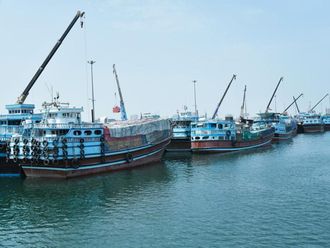
Abu Dhabi: More than a hundred thousand people yesterday made their contributions toward reducing worldwide carbon emissions by observing paperless day.
The initiative, organised by the Environment Agency — Abu Dhabi (EAD), saw unprecedented support with the participation of over 101,552 people including employees at as many as 60 government departments in the country.
Paperless day aims to stop all non-essential printing and use of paper in a bid to protect the environment, the EAD said.
"The campaign is a way to save on paper, which contributes to 20 per cent of the world's carbon emissions and is 70 per cent of all office waste," said Gayatri Raghwa, environment education specialist at EAD, who worked behind organising the event. "Every part of paper use, from production till disposal, involves so much energy consumption. So we at the EAD want to tackle climate change and global warming by reducing this contribution."
The campaign was first held in 2008, and has been attracting a growing number of participants every year, she said. This year, over 98 organisations and 18 schools took part.
As part of their commitment, participants stopped all non-essential printing. They also distributed educational videos on the conservation benefits of reduced paper use.
She added that the vision of a paperless day is to mobilise local and global action to cut carbon emissions through reduced use of paper. By next year, EAD hopes to take the event to an international level, Raghwa added.
"It is an ambitious project, but we see increasing interest every year. We believe this kind of an event can truly induce people to start conserving resources."
A dedicated website has been developed to help people interested in knowing more about paperless day (www.paperlessday.ae).
Facts: Climate change
One of the most important impacts of the paper industry is climate change. Every step in the life cycle of a sheet of paper contributes to global warming, from cutting down trees to producing the paper to its eventual disposal. The decomposition of paper in landfills produces methane, a very potent greenhouse gas. The production process leads to habitat loss for plant and animal species and pollutes air and water.












